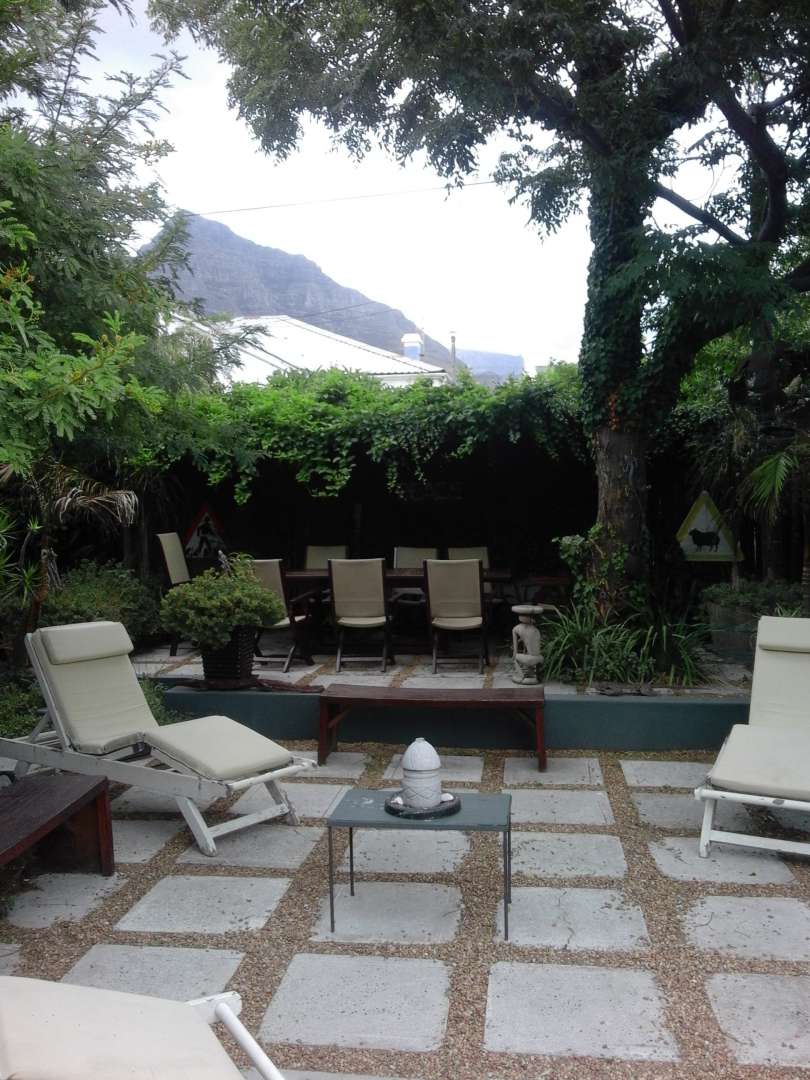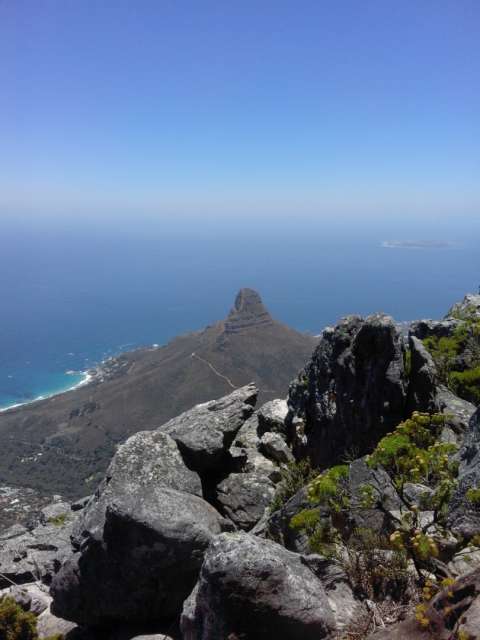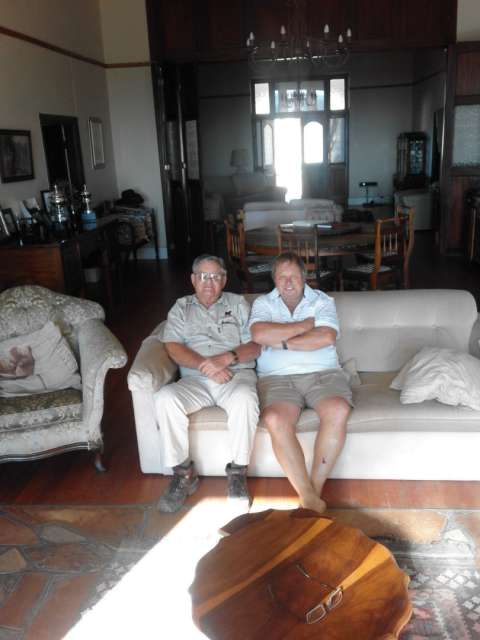Ute
Echt sehr interessant! 👍Farmer in Swartland
Lofalitsidwa: 01.02.2017
Lembetsani ku Newsletter
I had actually thought that I could work here as a farm laborer for some time and deepen my contact with the local farmers. But that turned out to be quite difficult from home. Now I also know why: They have enough of their own people and they use the expensive combine harvesters themselves. In addition, the harvest season is even shorter than ours because they are afraid that the grain will become too dry in the heat. Unlike us, where harvesting and sowing go directly into each other, there are about 5 months in between here. So an unsuitable period for farm laborers.
That's why I decided to visit as many farmers as possible to get an idea. It's not that easy. The farms are not directly on the road, but have a long driveway that you can't see the end of. A big iron gate often closes it. Or there are unwelcoming signs with words like 'shot, persecuted, stop, not allowed, on your own risk'.
Eventually curiosity prevails and you just drive up. This farmhouse is one of those Cape Dutch ones with the curved roof ridges. A Mercedes and a Toyota in front of the door and some quads. The door is open and I call out a 'Hello?'. There is a response, I introduce myself briefly and he invites me in. His herd manager, about 60 years old, is with him. Simon, the owner, talks about the difficulties that farmers in South Africa have. White farmers in SA (South Africa) are not wanted. The government buys farmland and leases it very cheaply to black people. Sometimes it succeeds, but often it doesn't because there is a lack of know-how, so the areas lie fallow and become overgrown. Simon also complains about subsidies in Europe and America that distort competition. In addition, the security problem is increasing. He has now hired security guards in addition to the fences and cameras. But farmers like Simon are fighters. He fits exactly the image of a Boer.
Until recently, Simon still had cows, about 1000, average herd size 11000 kg. But he has gradually reduced them. Now he breeds Angus cattle (400). He grows wheat and canola on 300 ha.
Simon says goodbye, but he asks me to stay and continue talking to the manager. He used to have an Angus herd in the Free State further east, but he had to give it up. He used to be chairman of the Angus Breeders Association in South Africa. He starts talking about politics and everything that goes wrong. That's another story.
Simon comes back and shows me the view. The house is located on a hill, the sea can be seen about 2 km away. On the left you can see the silhouette of Table Mountain. We say goodbye with the best wishes.
The next day I meet Ruan Lambard. He is the only contact I brought from Germany. Ruan works for an agricultural machinery dealer and does the marketing for Claas. In his office he tells me about Swartland. I thought it was called Swartland because the land is black. But it is called that because the first settlers came to an area that was full of black thistles. Hence the name. The soil is rather sandy and the rainfall is about 400 mm in the last two years, significantly below average. Wheat is mainly grown. The expected yield is 5-6 tons. It is sown in April with disc seeders and a fertilizer band is laid next to it. Harvest is in November when the rain stops. Afterwards, sheep or cattle are sent to graze on the stubble. That's why the fields are completely fenced with 5 rows of barbed wire. They are given some supplemental feed, but mainly feed on a type of grass that is growing now. One third of the area remains fallow for a year. Canola is also sown in April and swathed in October to be harvested at the end of October.
By now we have gotten into the car and he shows me the area. Finally, we drive to a dairy farmer. He has 1500 cows that are milked three times a day in an external milking parlor. Since there is no frost, all water pipes are open. The cowshed has no walls and large fans provide fresh air. There is also a sprinkler system that starts when temperatures exceed 30 degrees. The cows produce an average of 35 kg of milk. The performance has been over 40 kg before. But currently the quality of the feed is not sufficient.
The manure is scraped off with folding scrapers as long as they are intact. Then with a tractor and front loader. It ends up in a covered lagoon that functions as a biogas plant.
The calves are housed in individual huts arranged in long rows.
Then we drive back. Ruan has taken a whole morning for me. I am very grateful to him and invite him to visit me when he is at Claas in Germany.
The next day I receive another address from Ruan: Andre Brink. Andre and I arrange to meet on the following Monday.
The driveway is inviting and friendly. The farm is immaculate. This may be because wine tastings are also offered here and a restaurant invites you to eat. The farm has a website: www.phizantekraal.co.ca.
Andre welcomes me in his office, which one of his two secretaries brings me to. I introduce myself and we talk about agriculture here in SA and Europe. He acknowledges the problems, but doesn't complain about them. He thinks about making the best of it. Andre is an analytical person who is a farmer through and through. And very successful. In the past 20 years, he has bought 5 farms and leased 3. His success lies in knowing his numbers exactly and consistently using modern technology. So all machines have GPS, even the self-propelled swather. Fertilization is done based on yield. All his 4000 sheep are equipped with responders, so that individual weight development can be determined through regular weighings. Some sheep are also equipped with GPS. It is supposed to prevent theft of animals: If the animals are startled by cattle rustlers and start to run, the system detects this and sounds the alarm. Another reason for his success is his employees. He trains them himself, builds them a small house, pays for their clothing and school for the children. That's why he has many long-term employees. On the other hand, all employees are subjected to an alcohol test every Monday. The zero tolerance policy applies. If they exceed it, they pay a fine. 500 Rand, the wages of 4 days' work. After the third time, they are fired.
At the end of the tour, he shows me the winery and the restaurant. His wife runs it. Finally, I am briefly invited into the house, where I am introduced to his family. Afterwards, we say goodbye warmly and I leave the farm full of new impressions.
Lembetsani ku Newsletter
Yankhani (1)


